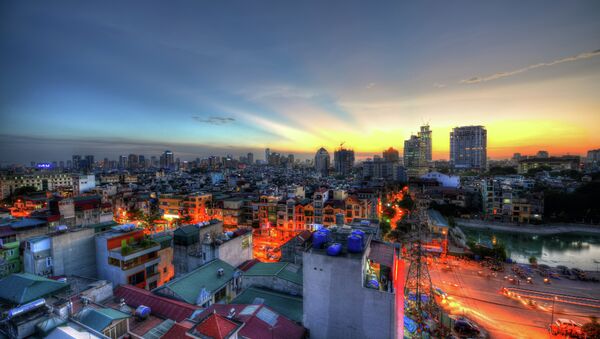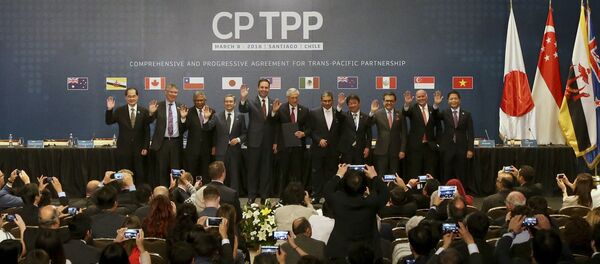Vietnam's National Assembly approved the new cybersecurity law in June, determining that on January 1, 2019, tech giants would have to help the socialist government to fight cyber attacks and crack down on "hostile and reactionary forces" publishing anti-government or anti-state materials online. The law further made it illegal to "post false information that could cause confusion and damage to socio-economic activities."
The law requires ISPs to store user data at offices inside Vietnam so that user data can be provided to authorities upon request, giving them until 2020 to comply. However, while the move has come under criticism from groups like Human Rights Watch and the Asia Internet Coalition, a November draft decree by Vietnam's Ministry of Public Security noted that "laws of 18 countries in the world, namely the United States, Canada, the Russian Federation, Germany, China, Indonesia, Greece, Bulgaria, Denmark, Finland, Sweden, Turkey, Venezuela, Colombia, Argentina and Brazil, require foreign internet-based services firms to store their important data within the host countries."
The document goes on to clarify that the new law "does not run against the international agreements and conventions that Vietnam is member to."
Vietnam has roughly 60 million Facebook users among its 95 million people, Al Jazeera notes.
The Singapore-based Straits-Times noted Wednesday that Google is already taking steps to open up a Vietnam office, and Facebook said in June that it "will remove content that violates [Facebook's] standards when we are made aware of it," noting that it has a clear process to manage requests from different governments.
Do Nguyen Mai Khoi, a Vietnamese pop singer-turned-political dissident, chose the two tech giants as targets of her protest against the law last week, accusing Google and Facebook of "acting as dictatorships" by cooperating with Hanoi's new law, Al Jazeera reported.
She appeared in the capital's Old Quarter with a banner featuring the likenesses of Facebook CEO Mark Zuckerberg and COO Sheryl Sandberg, and Google Executive Chairman Eric Schmidt, and the words "undemocratic regime," in a protest carefully calculated to skirt the boundaries of censorship laws.
Indeed, Sputnik reported in December 2017 that Vietnamese Minister of Information and Communications Truong Minh Tuan boasted of the government's success in getting Google and Facebook to remove thousands of videos and hundreds of social media accounts it had deemed fake or accused of political defamation.
"One of the highlights of the ministry this year is making Vietnam one of those countries pioneering in implementing measures to tighten the management of enterprises providing trans-border services, particularly Google and Facebook," Truong said in a statement at the time.
Thirteen Vietnamese civil society groups have signed a petition called "Save Net" in to press the government to repeal or revise the law.
Phil Robertson, Human Rights Watch's deputy Asia director, told the Guardian Monday the law was "the legal equivalent of a hammer to bash online critics, with overly broad provisions that can be easily used to classify almost any critical comment as criminal… While it's likely that activists who have previously spoken up against government abuses will be targeted first, the government's longer-term plan is to bring the internet under the same draconian controls that affect print media, TV and radio. The government's new year gift to its citizens is intensified fear about what they can say online and uncertainty about what issues and statements will trigger arrests and prosecution."
In February 2018, prominent Vietnamese environmental blogger Hoang Duc Binh was given 14 years behind bars by a Vietnamese court for "abusing democratic freedoms to infringe state interests" and for "opposing officials on duty" during his protests against the Formosa Ha Tinh Steel plant for its role in mass fish deaths following a toxic waste spill in April 2016. Hanoi wound up settling with the company for $500 million in damages, Sputnik reported.
Another environmental and human rights protester, Nguyen Ngoc Nhu Quynh, was arrested in 2016 and given 10 years in prison for posting reports about civilians dying in police custody, which police deemed to be anti-state, Reuters reported. She was released in October 2018 for humanitarian reasons and her jail term suspended, according to the Vietnamese Foreign Ministry.
Neighboring Laos, whose communist government is close to Hanoi, passed a similar ban in 2014 that criminalizes posts that distort "the truth to tarnish the dignity and undermine the rights of individuals, sectors, institutions and organizations," Sputnik reported. Vientiane's law put part of the onus on the internet service providers for supporting individuals or organizations allegedly smearing the government, and requires internet users to use their real names instead of pseudonyms on social networks.
China's cybersecurity law went into effect in 2017, but the Ministry of Public Security has steadily clarified the law's broad statements in several regulations released in the time since, Sputnik reported. The latest, released in October 2018, is quite similar to Vietnam's, giving public security authorities the ability to enter businesses, machine rooms and offices of ISPs — which can include anywhere from internet cafes to data centers — and requiring the managers to explain all of the items authorities inspect and to look up and copy all relevant information for them. It also empowers police to check on the ISP's network and information security.
According to the 88 Project for Freedom of Expression in Vietnam, the country currently has 210 political prisoners and a further 19 in pre-trial detention.







